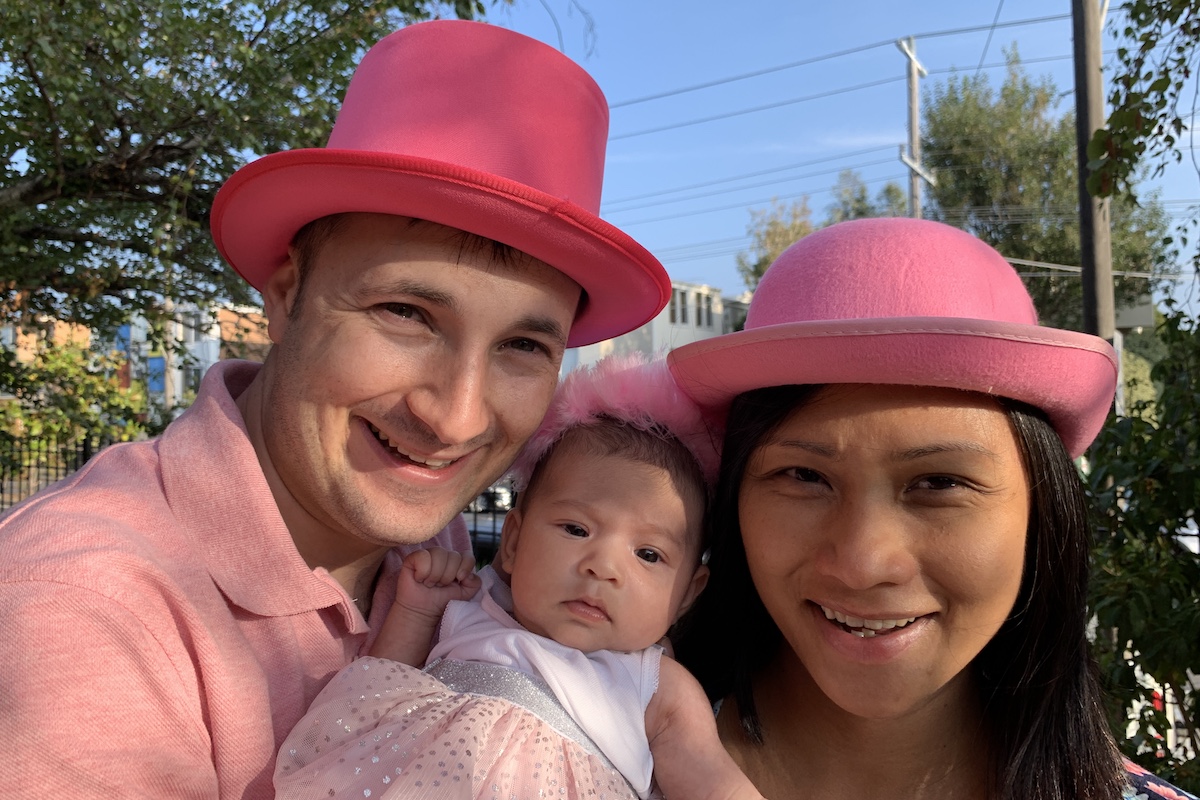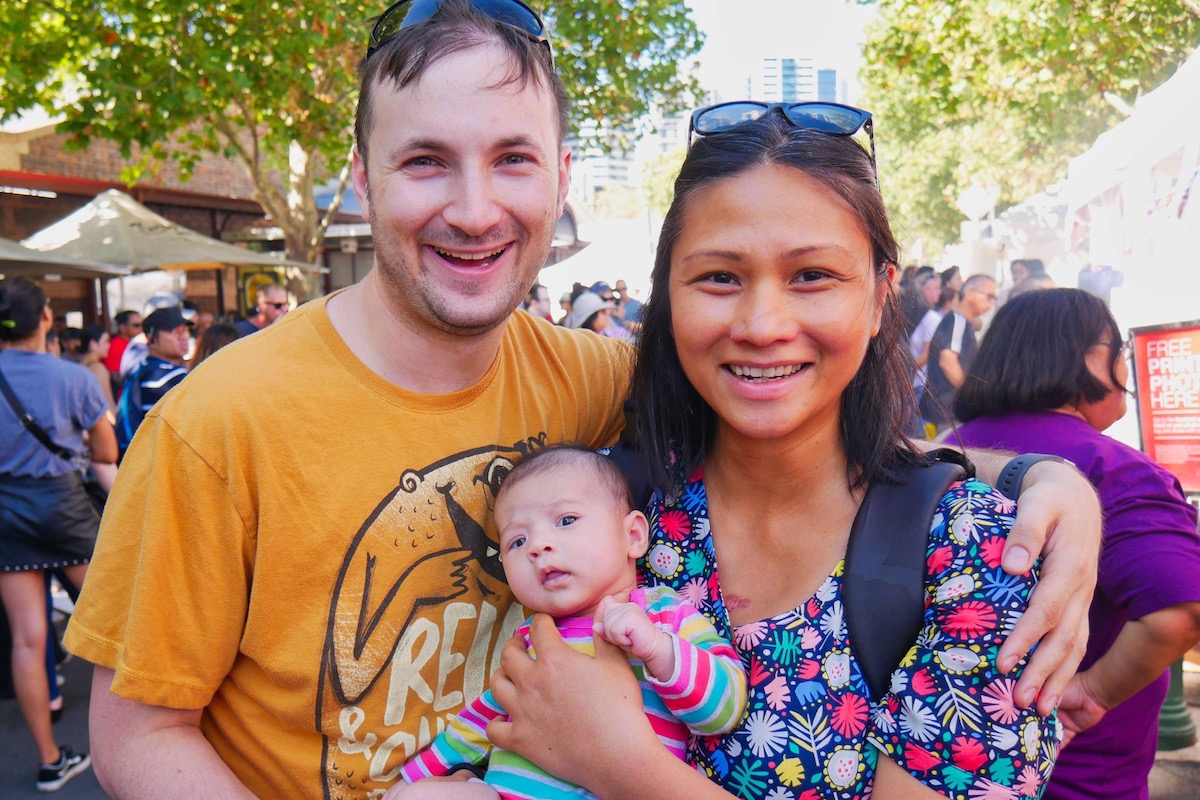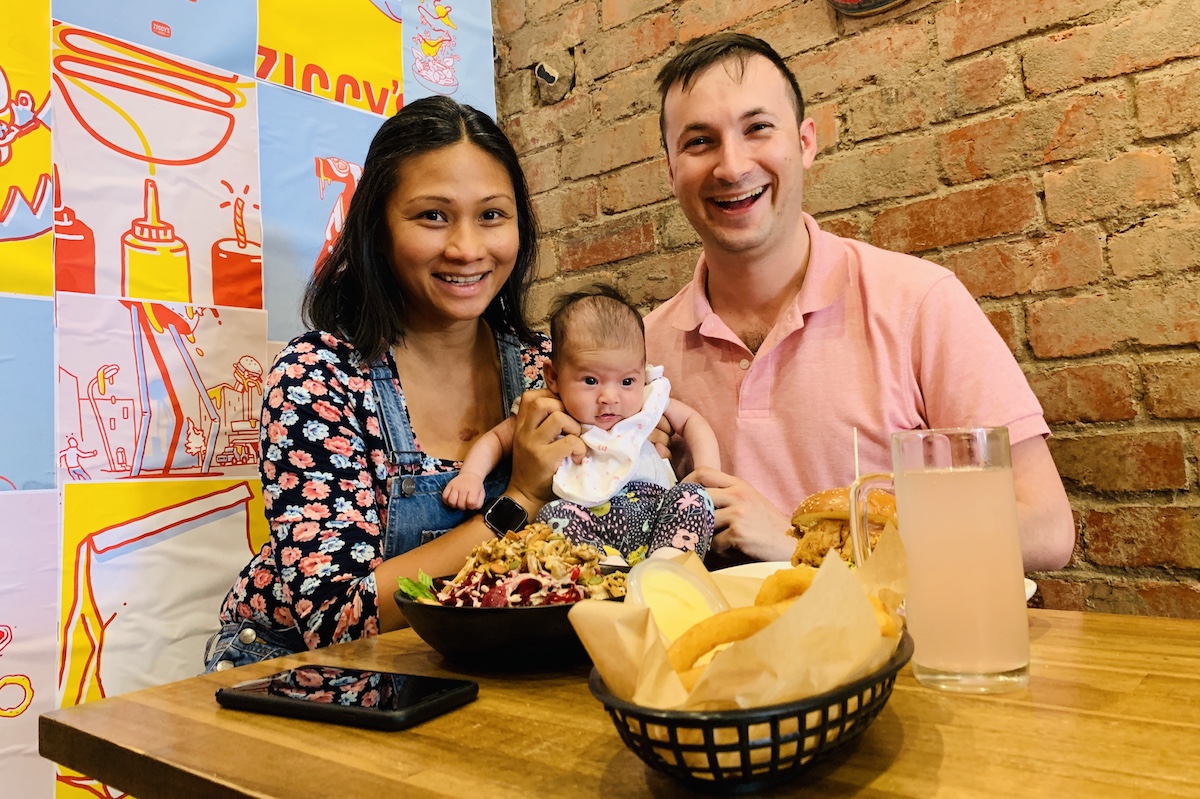Janeca Carranza got our attention when she opened up online recently with a soul-bearing account of the ‘raw and evolving’ experience of becoming a first-time parent and the impact on her physiological, social, financial and emotional wellbeing. Her musings open a dialogue about co-parenting (she and her husband are sharing the load) and how family-friendly and culturally-sensitive initiatives will help overcome barriers for women and diversity in the workplace.
Can you tell us about your career journey so far?
I completed my bachelor degree at 19 (in the Philippines) and left for my first job overseas. My career journey started as a product marketer for Sony Walkman based in Dubai. I came to Australia in 2007 and worked for a food company as a quality assurance analyst and then as a food marketer. In 2010, I decided to study law in Australia and eventually got a job in the government. In 2017, I became a qualified lawyer and took a secondment in a legal policy role. After this I moved back in my substantive role where I provided operational and business reports to executive management. I have continued to work in the public sector and have been in various roles for about seven years focusing on corporate services and policy.
Congratulations on the recent arrival of your gorgeous daughter, Shifra. How has becoming a parent changed your perspective on life?
Becoming a parent has given me inspiration and goals to achieve. I’d like Shifra to learn many things at the right age, so I’m co-planning for her future to give her the best chance in life.

You are on parental leave from your government administration position. How were you feeling when you left work to start parental leave?
Honestly, I had the best support from my team. I gave notice to my manager 10 weeks in advance, so they were able to find a replacement in time before I left. I worked through until 37 weeks and was able to train my replacement. My colleagues gave me a baby present and a nice farewell.
How are you keeping in touch with work while you’re away?
I keep in touch via email or SMS. I also have social media accounts including LinkedIn and Instagram, so when I get tagged or post something and they see it, I get messages from time to time from my colleagues. It’s a fantastic way to communicate both personally and professionally.
Before starting a family, you made the decision to pivot your career and pursue an education/job in law. What led you to this?
I completed my law degree prior to starting a family and have continued to work in public service since then. It’s complementary as I have studied part-time while working and have always desired to apply my legal skills in public service.
You are passionate about advancing gender and ethnic diversity in the legal profession and society as a whole. What do you think are the biggest barriers for women and diversity in the workplace? What needs to change? What can companies practically do to better support families and a more inclusive society?
There is an inherent double ceiling for me as an Asian migrant and as a woman. As a member of the Asian Australian Alliance and Asian Australian Lawyers Association, I’ve been a strong proponent of diverse representation of the Asian community (which is also quite broad in its own). I believe that lack of representation and low level of awareness and acceptance to the community are some of the barriers for women and diversity in the workplace. I’ve seen and read many plans being made about diversity inclusion and equal representation in senior roles for women.
I think that as a society we need to change the way we think and be more open to new leadership. I also think it’s time to embrace a more emotional-based, culturally-sensitive and forward-looking approach to running a government or business. This means providing equal pay for the same role for any gender, supporting career women to become parents by introducing a range of family-friendly initiatives including longer parental leave with pay, having maternal services in-house (lactation rooms, childcare service onsite or additional childcare subsidy), multiple options for those wanting returning to work including job sharing or mobile working arrangements.
Your mother worked full-time as a midwife while raising you and your siblings. How has this impacted your ambition and the type of role model you hope to be for your daughter?
My mother managed to work full-time and raise three kids at the same time. It’s not easy to manage multiple responsibilities but it’s doable with support from family, friends and colleagues. I’d like to do the same with my daughter by striving to give her the best education and life experience with me and her dad. We’re all unique in our ways of thinking, so I’m hoping she will be able to learn on her own with our guidance and support.
You have mentioned that society is more sympathetic to working mothers in your generation than in the past. In what ways do you think it will be easier for you as a working parent than it was for women in your mother’s generation?
I believe there is more understanding in the community about dual-income parents than previous generations. The previous generations paved the way for better working opportunities for parents. In saying this, it can also be circumstantial as not all working women have the same work environment. Some workplaces require long hours of being onsite leaving responsibilities at home dealt with by someone else, or some require constant travelling and taking the child with them wherever they go. It all varies, but generally there’s more widespread support from the community.

Your LinkedIn profile proudly states that you are currently a ‘full-time parent’. What new skills have you learnt (or are you learning!) since becoming a mum that will have a direct and valuable impact on your career?
Calculating my breast milk supply and its timing is a new skill I found! Kidding aside, as a full-time parent, I have continued to work on and enhance my soft skills including time management, patience, understanding and open communication. Being a positive teammate with my husband and mother-in-law is quite valuable as it helps us all become a better parent and grandparent to Shifra.
How do you share the juggle of parenthood with your partner? And how do you see this changing as you transition back to work?
We’ve both been advocating for co-parenting and sharing the responsibility. We discuss issues openly and decide the most suitable approach.
What is your approach to health and wellbeing? Has it changed since becoming a mum?
Good food follows a healthy mind, heart and soul. Rest if you’re tired, and if you’re not in a good mood, sleep it off.
What would you say to other parents who are about to embark on parenthood?
Give it a shot, and give it your best shot. Don’t jump in quickly, prepare a little bit, and then tackle the challenges together as a couple.
Favourite time of the day is … nap time!
Instagram sites that inspire you … @lauraiz, @zotheysay, and lots of cyclists!
I’m happiest when … I hike with Max and Shifra, followed by a nice meal afterwards.
I’m addicted to … chocolate!
Favourite wardrobe staple for work … suit pant.
Favourite wardrobe staple for weekend … Lululemon running shirt and hiking pant.
My role model is … a collective of strong women in my life including my mom, aunty, sister, mum-in-law, girlfriends and the suffragettes!
Heels or flats? Flats (heels are not naturally designed to be good for our feet!).







